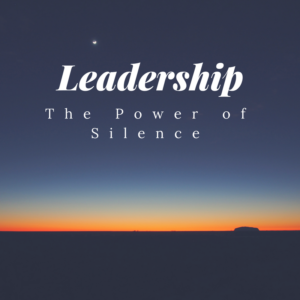 Anyone who is not living on a desert island is bombarded daily with all the voices of our country’s leaders. Bombast, innuendo, accusations, criticisms, retorts, bullying, insults and YELLING are what we have become used to in the age of Twitter. Never before have national leaders used Twitter for policy statements, opinions, put-downs and daily conversations for all the world to see. Lost in all the noise are two things, real leadership and potentially, truth.
Anyone who is not living on a desert island is bombarded daily with all the voices of our country’s leaders. Bombast, innuendo, accusations, criticisms, retorts, bullying, insults and YELLING are what we have become used to in the age of Twitter. Never before have national leaders used Twitter for policy statements, opinions, put-downs and daily conversations for all the world to see. Lost in all the noise are two things, real leadership and potentially, truth.
Unfortunately, these are two of the most important and necessary elements to achieve success. Leading a company, a team of people, the government or the country is best done thoughtfully, reflectively and by putting the best interests of the collective first. In order to know or hear the right strategies and the needs of the constituents or customers, leaders must listen. To listen well, leaders must practice silence.
We have all witnessed in excruciating detail the result of a lack of listening. Uninformed, continuous blather that ping-pongs from one “fact” to another with no airtime for any reasoned conversation about the truth. In order to actually hear any truths, regardless of whether we agree or not about the veracity, we must actually listen. Great leaders hear all sides, gather information and make decisions based on the information available. If one never listens, critical information is missed.
Dwight D. Eisenhower prepared the following in the event that the D-Day invasion during WWII did not succeed:
“My decision to attack at this time and place was based upon the best information available. The troops, the air, and the navy did all that bravery and devotion to duty could do. If any blame or fault attaches to the attempt, it is mine alone.”
This was a great example of leadership because he listened, gathered the best information available, made a decision and owned the outcome, no matter what. No blame, no bullying, no accusations, no victimizing, no yelling – only vision, a plan, commitment, and responsibility.
Leaders gain the trust of those they serve by truly understanding that theirs is not the only voice in the room, let alone the smartest. Leaders who listen, gain trust. Believing that in the gathering of the best ideas, the people are well-served, and the best decisions are made. If there is no listening what has been missed? How much trust can there be?
Lead by example. Listen first and use the power of silence to give yourself time to truly understand and learn all the options available to you. Those who feel listened to are more apt to follow, even when they disagree with a decision because they feel as though they were heard, and the best option was chosen. People will give leaders their trust and really listening to them is the best way to begin that process. In the leader’s silence, ideas, thoughts, and strategies are surfaced that would not otherwise be discussed. If your people don’t feel heard they cease to speak and their ideas die in silence.
